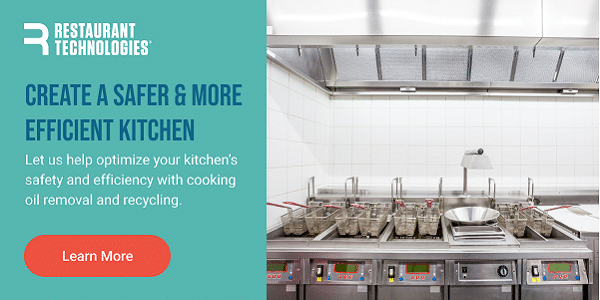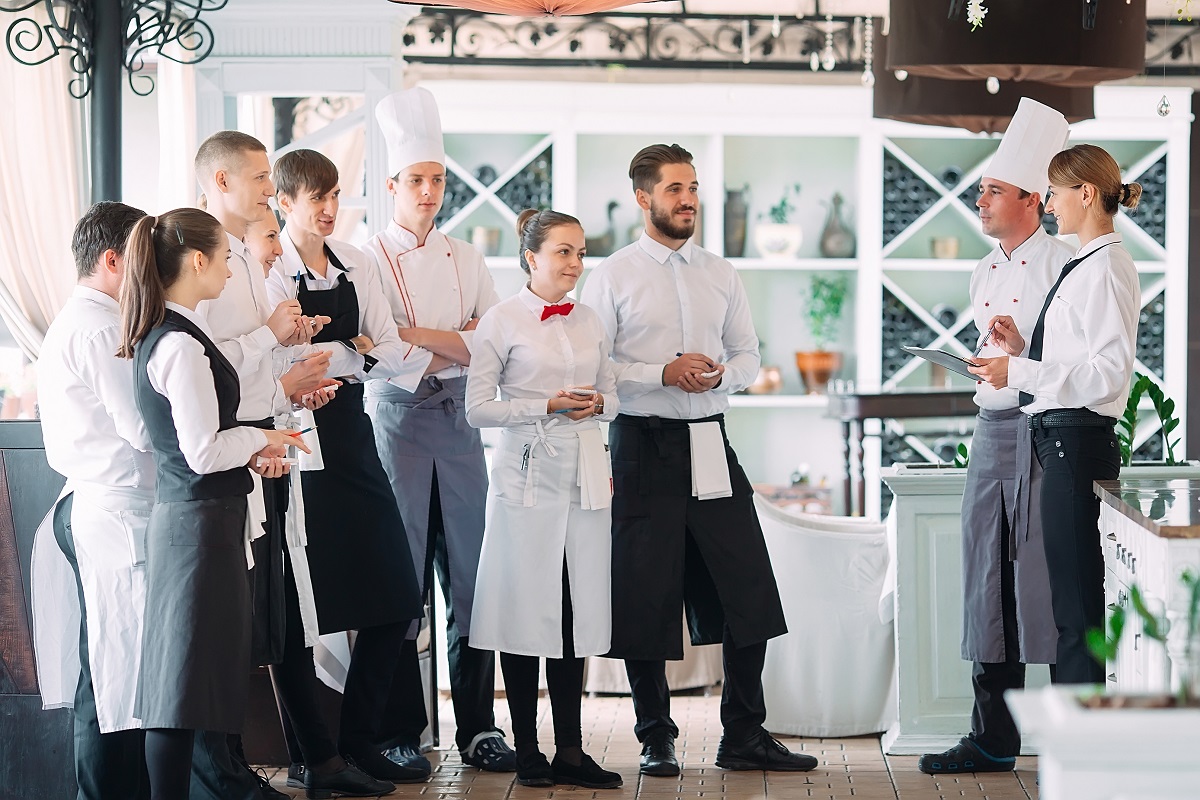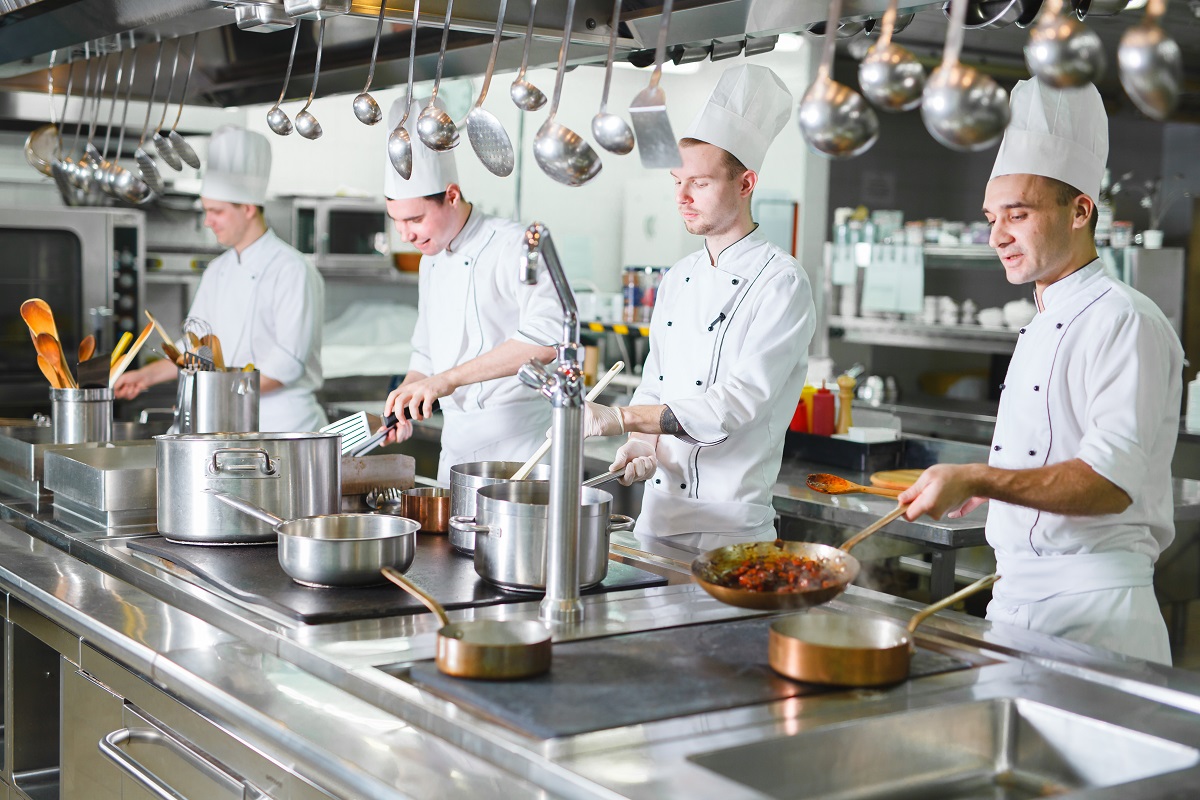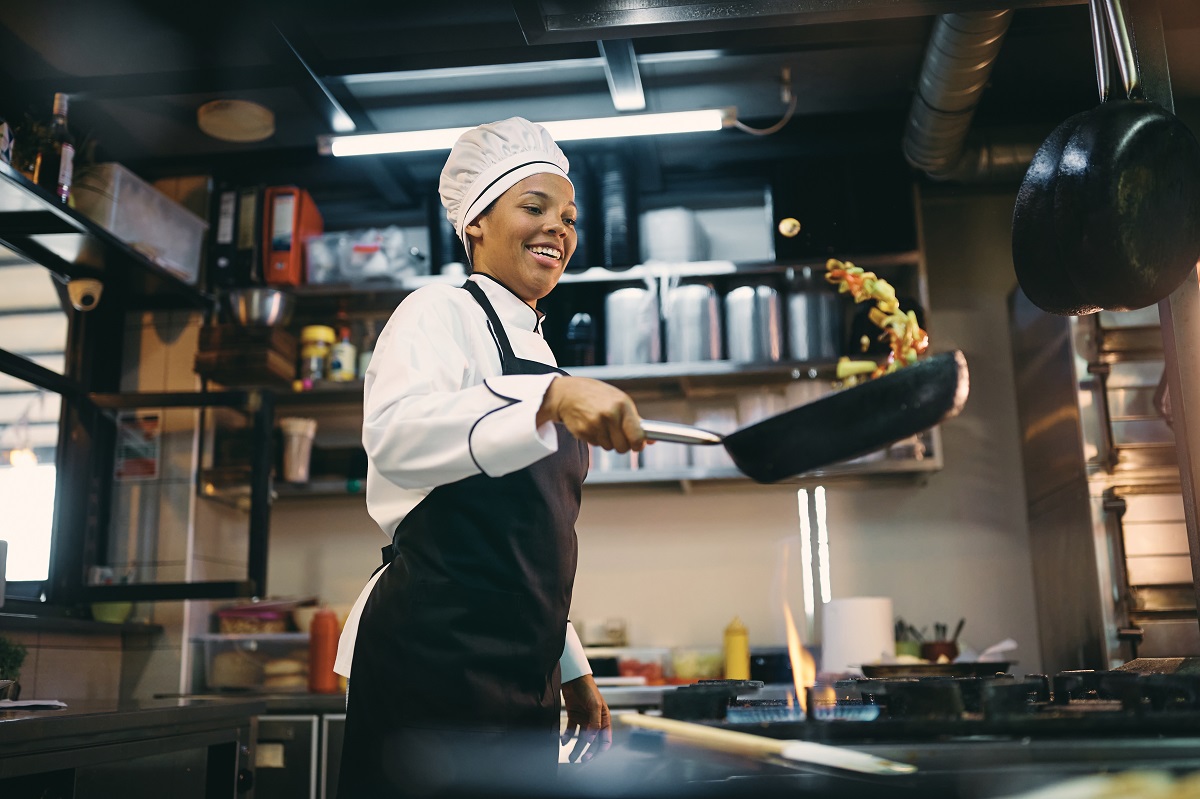Running a professional kitchen requires a blend of energy, strategy, efficiency, and an unwavering eye on your end product’s quality.
This is taken up a notch in the world of hotel kitchens, where guest expectations tend to be higher and complexities may range from offering 24-hour room service to feeding 500 people at a wedding.1 Commercial kitchen design, naturally, plays a huge role in how well you can handle both (and everything in between).
Fortunately, you’re in the right place. This hotel kitchen design guide will leave you with the knowledge you need to build a kitchen that thrives. Plus, we’ll offer some tips to ensure efficiencies such as automated, commercial cooking oil management.
How Do You Plan a Hotel Kitchen?
Planning a hotel kitchen bears several similarities to mapping out a commercial kitchen, only with a more expansive perspective. For instance, whereas a commercial kitchen may have to feed 200 people during lunch hour, a hotel kitchen might need to be equipped to feed hundreds of people over the day and in capacities varying from poolside sandwiches to luxuriant, five-course meals.
With this in mind, let’s take a look at the following tips:
Design for Efficiency and Flexibility
Workflow design, and the space where your restaurant operates, assume next-level importance in a hotel kitchen that plates out dishes for a variety of on-site venues. To this end, determine a space and hotel kitchen design that prioritizes:
- Ease of transport – Food from your kitchen may have to be delivered to various places on the hotel’s property, such as a suite on the seventh floor or a breakfast spot in the lobby. For this reason, your professional kitchen should be located near elevators and major corridors to allow for efficiency and promptness.
- Adaptability – Hotel kitchens have unique needs throughout the day and seasons. Your hotel kitchen should reflect this with cooking equipment, counters, mobile shelving, and workstations that can be rearranged to accommodate an array of scenarios.
Choose the Right Equipment
Selecting the right hotel kitchen equipment depends on the forms of service you’ll ultimately provide your guests, whether it’s fast-casual at breakfast or banquets at dusk.
Regardless of the type of food, your kitchen should be able to make, ensure that your commercial kitchen equipment is designed to2:
- Produce a large volume of food for your guests
- Meet rigorous hygiene requirements (such as durable and easy-to-clean stainless steel kitchen appliances)
- Provide ergonomic comfort to reduce kitchen staff’s fatigue
Above all, a hotel kitchen requires a diversity of equipment to satisfy diners’ demands and an assortment of menus.3

What Should Be in a Hotel Kitchen?
Whether you’ve found yourself searching “layout for kitchen in 5-star hotel” online or hope to up-level your current kitchen’s offerings, there are several overlapping essentials a hotel kitchen ought to feature:
Must-Have Kitchen Equipment
Primary pieces of hotel kitchen equipment include4:
- Food preparation equipment, such as blenders, mixers, and slicers
- Refrigeration and freezing kitchen appliances
- Cooking equipment, including ovens, stoves, and broilers
- Storage solutions
Stock Up on Hotel Kitchen Supplies
Your commercial kitchen should have an ample supply of the basics, while your kitchen manager should perform regular inventory checks, especially before (and during) peak dining times and visitor seasons. Better yet? You can opt for automated inventory monitoring, a topic we’ll discuss below.
What are the Basic Features of a Hotel Kitchen?
An efficient hotel kitchen keys in on maximizing space, enhancing workflow efficiency, ensuring safety, and improving cost-effectiveness—all while providing guests with consistently quality cuisine.
Specifically, a sound hotel kitchen design focuses on:
Lay-Out and Design Principles
The layout and design principles of hotel kitchens emphasize:
- Safety and maneuverability – The high energy, often rapid pace of hotel kitchens, coupled with heat, spills, and activity, can be a breeding ground for injuries. One of the best ways to prevent burns in the kitchen and decrease the chance of slips and falls is space. There should be enough space between stations and sections to meet the needs of front-of-house and back-of-house employees. A standard in the industry indicates that a hotel kitchen should have five square feet of space for every seat in the main dining area. For example, if a hotel restaurant seats 200 people, the kitchen space will need to be 1,000 square feet to enable its staff to work comfortably and safely.
- Proper ventilation – The health and safety of your employees and guests also depend on appropriate ventilation to mitigate smoke exposure and ensure productivity.5
Technology and Automation
Investing in technology that streamlines modern kitchen processes is non-negotiable in our modern, fast-paced era. This includes automated6:
- Inventory tracking
- Cleaning systems
- Cooking oil management
- Kitchen Display Systems (KDS)
- Temporary sensors
Not only do these advanced kitchen automation technologies help curb labor costs but they may also promote a more harmonious, and productive hotel kitchen.
Enhancing Hotel Kitchen Efficiency with Restaurant Technologies
Designing a hotel kitchen may be substantial but the rewards of a well-oiled one are just as sizable, from increased profitability to enriched customer and staff satisfaction.
Restaurant Technologies can amplify your efforts. Our automated restaurant oil management covers everything from cooking oil delivery to recycling and disposal. What’s more, our services help you mitigate waste and boost sustainability.
Experience the ease that can be found by partnering with Restaurant Technologies.
Sources:
- Sam Tell Companies. 5 tips for designing an effective hotel kitchen. https://www.samtell.com/blog/tips-for-designing-efficient-hotel-kitchen
- ContekPro. Guide: hotel kitchen design principles. https://www.contekpro.com/blog/commercial-kitchen-design-hotel
- RmKitchen. Commercial vs conventional kitchen equipment breakdown. https://mohinipandeyweb.medium.com/commercial-vs-conventional-kitchen-equipment-breakdown-278768cb2923
- ContekPro. Hotel kitchen: the essential equipment list. https://www.contekpro.com/blog/hotel-kitchen-essential-equipment-list
- eHotelier. How to design an efficient hotel kitchen. https://insights.ehotelier.com/insights/2024/02/26/how-to-design-an-efficient-hotel-kitchen
- Chowbus. Kitchen automation: transform your restaurant’s efficiency! https://pos.chowbus.com/en/blog/article/kitchen-automation






